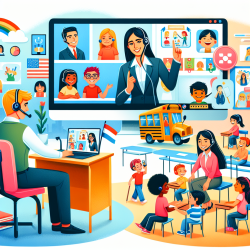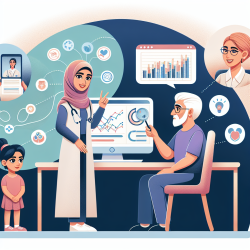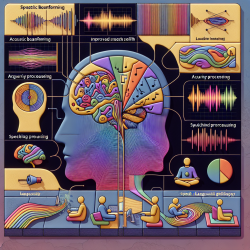Unlocking the Power of PheWAS: Enhancing Your Practice with Cutting-Edge Research
As practitioners dedicated to improving child outcomes, staying abreast of the latest research is essential. The recent study titled A PheWAS study of a large observational epidemiological cohort of African Americans from the REGARDS study offers valuable insights that can enhance our practice. This blog will delve into the key findings and how they can be applied to improve your therapeutic interventions.
Understanding PheWAS and Its Relevance
The Phenome-Wide Association Study (PheWAS) approach is a powerful tool for identifying associations between genetic variants and a wide range of phenotypes. Unlike Genome-Wide Association Studies (GWAS), which focus on a single phenotype, PheWAS explores multiple phenotypes, providing a more comprehensive understanding of genetic influences on health.
The study in question examined 4956 GWAS catalog SNPs and 67 traits among 7726 African Americans from the REasons for Geographic and Racial Differences in Stroke (REGARDS) study. The findings validated 29 known associations, with eight being reported for the first time in African Americans. This cross-racial validation underscores the importance of considering genetic diversity in research.
Key Findings and Their Implications
The study's findings have several implications for practitioners:
- Validation of Known Associations: The study confirmed 17 previously reported genotype-phenotype associations, validating the reliability of the PheWAS approach. For instance, associations between specific SNPs and traits like C-reactive protein levels, HDL cholesterol, and heart rate were confirmed. This validation provides a robust foundation for integrating genetic insights into therapeutic practices.
- New Cross-Racial Validations: Eight associations were reported for the first time in African Americans. This includes associations between SNPs and HDL cholesterol, height, and cystatin C levels. These findings highlight the importance of genetic research in diverse populations and can inform more personalized therapeutic interventions.
- Pleiotropic Effects: The study identified 11 SNPs associated with multiple traits, revealing pleiotropic effects. Understanding these effects can help practitioners recognize the interconnectedness of various health conditions and tailor interventions accordingly.
Applying These Findings in Practice
Integrating the study's findings into your practice can enhance therapeutic outcomes. Here are some actionable steps:
- Personalized Interventions: Use genetic insights to tailor interventions to individual needs. For example, understanding a child's genetic predisposition to certain traits can help you design more effective therapy plans.
- Collaborative Care: Collaborate with geneticists and other healthcare professionals to provide comprehensive care. Sharing genetic insights can lead to more holistic and effective treatment plans.
- Continued Education: Stay informed about the latest genetic research and its implications for your practice. Attend conferences, participate in webinars, and engage with professional networks to keep your knowledge up-to-date.
Encouraging Further Research
While the study provides valuable insights, it also highlights the need for further research. Encouraging your colleagues and students to engage in genetic research can help advance the field and improve therapeutic outcomes for children. Consider the following steps:
- Promote Research Initiatives: Support and promote research initiatives within your organization. Encourage practitioners to participate in studies and contribute to the growing body of knowledge.
- Mentorship: Mentor students and young professionals interested in genetic research. Provide guidance and resources to help them pursue their research interests.
- Advocacy: Advocate for funding and resources to support genetic research. Engage with policymakers and stakeholders to highlight the importance of this research for improving child outcomes.
Conclusion
The PheWAS study of the REGARDS cohort offers valuable insights that can enhance your practice and improve outcomes for children. By integrating these findings into your therapeutic interventions and encouraging further research, you can contribute to the advancement of the field and the well-being of your clients.
To read the original research paper, please follow this link: A PheWAS study of a large observational epidemiological cohort of African Americans from the REGARDS study.










